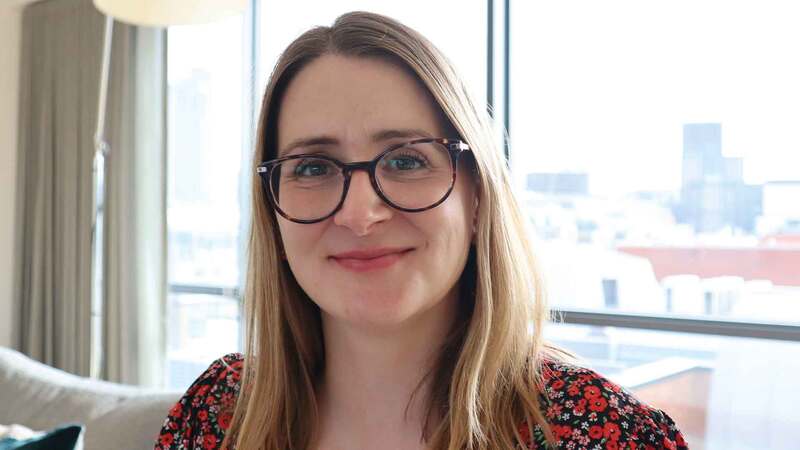You are viewing your 1 free article this month. Login to read more articles.
New York's BISG explores 'new normal' of printing and paper problems
Bookended by an opening session on 2018’s holiday season paper/production capacity crunch, and a bravura closing keynote from Kobo c.e.o. Michael Tamblyn on how publishers lose money by leaving it on the digital table, the Book Industry Study Group annual meeting in New York (26th April) was a big tent event, true to its mission to bring all sectors together under the supply-chain rubric. A sold-out crowd of 200 attested to the group’s now-steady health, but though membership is up 20% since 2017, BISG has its own problem to solve: it has gained smaller companies, but lost larger ones, something the organization promises to address.
Matt Baehr, executive director of the Book Manufacturers’ Institute, and Janet McCarthy Grimm, v.p. of paper supplier Lindenmeyr, explored what she called “the perfect storm” of last year’s final months: customers wanted to buy titles for which there were no copies. As with climate change, we’re living a new normal, and though capacity was restored at the start of the year, Baehr and Grimm warned that 2019 may well see another “rough” fourth quarter.
Since 2013, Grimm explained, publishers have been making more paper and print decisions “on demand,” causing producers to respond with “dramatic” declines in capacity of book-grade papers. Instead, mills have converted equipment to make paper for packaging. At the same time, the publishing and paper industries have both become more global, and the traditional lead time of three to six months’ planning has become “an illusion rather than reality.” Publishers who had better luck navigating last holiday season were those who supplied their own paper to printers. “Take more control of your destinies: stay in tight communication with suppliers.”
Baehr pointed to the closing of many printers, and a difficulty for those who remain: finding workers at a time of low unemployment. Automation is the likely solution. Low unemployment also impacts trucking industry capacity, with a knock-on effect for books.
Though consolidation has encouraged more all-purpose commercial printers to add books to their mix, they’re only handling ones that can be perfect-bound. Last autumn’s slowdown, Baehr emphasized, was most visible at binderies: “nobody is adding new capacity for making hardcovers.” Grimm also saw binding as the biggest pain point, and gave another reason: as publishers have turned to digital book applications for short runs, those digitally-printed books, still traditionally bound, effectively interrupt binderies’ press flow.
Part of the solution, both said, was to talk across all supply chain groups with the help of BISG, but they’re still figuring out how to do so, given government constraints on information-sharing. If the merger of the two remaining print behemoths Quad and LSC Communications goes through, it remains to be seen how that will affect US publishing.
In a rights panel, Curtis Brown agent Ginger Clark, Houghton Mifflin Harcourt rights director Debbie Engel, Penguiun Random House rights director Lance Fitzgerald and Trident Media foreign rights director Dorothy Vincent conspicuously didn’t address Brexit, but did speak of Poland being a “really lucrative” market at the moment, and producing a “snowball effect”: sell a book there, and a string of other Eastern European markets often follow.
Discussing workflow, HMH director of business intelligence and data Michelle Vu outlined how her company started mid-2018 to use AI and a “bot” to replicate certain more mundane vendor-related tasks that humans used to do. “We’re not trying to get rid of jobs, but to free people up to do more interesting tasks,” she was quick to add.
Dennis Abboud, senior sales director at ReaderLink, the major book distributor to mass merchandisers and airports, spoke in a sales panel of the importance of building the case for books in a market sector where they’re now seen as part of an “entertainment” department including movies, music, and magazines. The argument needs to be made: while those other categories are now “overwhelmingly” digital, more space should be devoted to books, where “86% of revenues are in the physical space.” On the same panel, Ingram Content Group digital services director Margaret Harrison made a different point: where metadata is concerned, “quality is so much more important than quantity of attributes.”
Which brings us to the solo keynote by Kobo’s ebullient Tamblyn. Describing the industry as having reached “the fifth wave of bookselling,” i.e., “books versus everything else in the attention economy,” he explained that he asked his metadata mavens what publishers could do in the digital sphere to prevent leaving money on the table.
First, pay attention to local time, to achieve local sales: a hot title can lose a day of sales if release time is always predicated on midnight, New York. Second, institute market-sensitive local pricing; straight currency conversion almost never works. Third, use your rights to sell everywhere you can; Kobo sold 600,000 English titles in non-native-English countries last year. Fourth, test price elasticity. Independent authors “already use it as a weapon.” Sixth, add series data every time. Series constitute 52% of ebook sales; 42% of Kobo’s top customers have at least two books by the same author. Alas, series also constitute one of the “most abused” fields (e.g., “James Patterson” and “Jimmy P” can pose a problem for metadata.) Seventh, “power up your synopses” with SEO in mind. “We don’t care about keywords,” quoth Kobo.
Finally, Tamblyn – contradicting doubters on the earlier rights panel, who still question what’s in it for the author – made a plea for subscription services, pointing to success Kobo has had with its program in the Netherlands. Faced with publishers’ fears about subscriptions devaluing books, he asked whether a whole generation who now pay a $10 monthly fee for music or movies will continue to want to pay double that amount or more for one book? Though “change is both slower and faster than expected” and print has been resurgent, he, for one, is convinced that “the future will be digital.” Alexa, Siri, and audio fans seem to be listening.


















